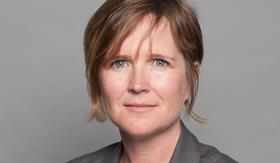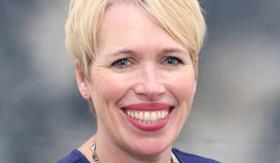An upcoming report has found that the role of leaders is changing as we move towards integrated care with significant efforts needed to build a pipeline of leaders, say Saffron Cordery and Suzie Bailey


Senior NHS leaders enjoy highly rewarding but increasingly challenging roles. Our latest report on leadership vacancies (to be published tomorrow) highlights the cocktail of financial and operational challenges they face and the pressures caused by the unrelenting media and political attention on the NHS.
Despite the positive press around NHS 70, this often sees leaders portrayed negatively, particularly those from managerial rather than clinical backgrounds.
It’s not all bad news. The average tenure for a trust CEO is up to three years from two and a half in 2014. But this is still too short and the turnover in the executive director posts we looked at is very concerning given the link between trust performance and leadership tenure.
There is still a lot to do across the NHS to ensure its leaders truly reflect the communities they serve
And while there has been some progress in addressing the diversity, there is still a huge amount to do across the NHS to ensure its leaders truly reflect the communities they serve.
Many factors are making it more difficult to find leaders with the necessary experience, capability and motivation. This includes the risk of organisational failure (and the personal risks associated with this), the degree of upward reporting and scrutiny, and hierarchical and non-inclusive structures that prevent some leaders from realising their full potential.
We also found evidence of the inverse leadership law, with the most challenged organisations
A changing role for leaders
Since The King’s Fund’s previous analysis of leadership vacancies, conducted with the HSJ in 2014, things have moved on. A changing of the guard has taken place, with many of the longest serving CEOs having retired and a new generation of talented leaders coming through, including more with clinical backgrounds.
The big teaching trust chief executives have always been considered amongst the alpha leaders of the service, given their large autonomous organisations with big local and regional reach.
But the leadership task is changing, with a significant shift away from organisations operating as separate entities towards working together in systems of care – this requires new ways of working and new approaches to leadership.
It is now imperative that senior leaders dedicate time to working collaboratively in local systems, but this understandably impacts on the time available to run “their” organisations.
A significant shift away from organisations as separate entities towards working together in systems of care requires new approaches to leadership
A new model of leadership means developing leaders with new skills and behaviours. At a time when the familiar role models are retiring and the paradigm is changing, investment in leadership development is crucial. Potential senior leaders need to be identified, know they are valued and be supported to take on more senior roles.
Recruitment from outside the NHS to senior roles has a patchy history of success, and we have also described the “ghettoisation” that exists in the current system and impacts on even the most experienced leaders.
We would like to see greater opportunities for “cross fertilisation” of skills and backgrounds which could help transcend the ghettos. But this will require boards to take risks, be more open to recruiting people from diverse backgrounds and ensure support is available to those leaders making the transition from a different type of organisation or part of the system.
Developing a pipeline of leaders
Over the years, the development of potential leaders in the NHS has been highly variable and is often not sufficiently embedded in the service. The Leadership Academy, now part of Health Education England, offers a range of centrally funded programmes and there are a wide range of leadership offers available on the market.
However, there is still some way to go before leadership development is considered essential professional development despite the recommendations of the Berwick Report in 2013 that “leaders should create and support the capability for learning, and therefore change, at scale, within the NHS”.
More important than the identification and training of leaders is the environment in which they are working. The everyday interactions of leaders affect local culture and the ability of staff to do their best work. Equally, the current regulatory and oversight environment and the negative experience of some local leaders in their dealings with regulators will impact on the attractiveness of senior leadership roles.
So, what can be done to improve the current situation and develop a strong pipeline of senior leaders? We believe that responsibility for leadership needs to be spread across the system.
- Locally, trusts need to make an ongoing commitment to developing and supporting the leaders of the future.
- Board chairs need to be able to access their freedom to pursue the most appropriate recruitment route at the same time as accessing regional and national support.
- At a regional level, a focus should be on rebuilding talent management support. An excellent example is the work of local leaders in the Midlands and East.
- The scope of national programmes should be extended to focus on roles with the most vacancies and shortest tenures (eg COOs, strategy leads).
- National organisations should follow through on their commitment to support local leaders through collectively reshaping the regulatory and oversight environment.
In his report in 2013, Don Berwick also reminded us that developing a culture of learning in the NHS “depends, more than anything else, on how you as senior leaders behave, speak and invest”. As the 10 year plan for the NHS is being developed, we call for a renewed focus on people, leadership and culture in which every leader can play their part.
Saffron Cordery is deputy chief executive at NHS Providers.
Suzie Bailey is director of leadership and organisational development at The King’s Fund.



























No comments yet